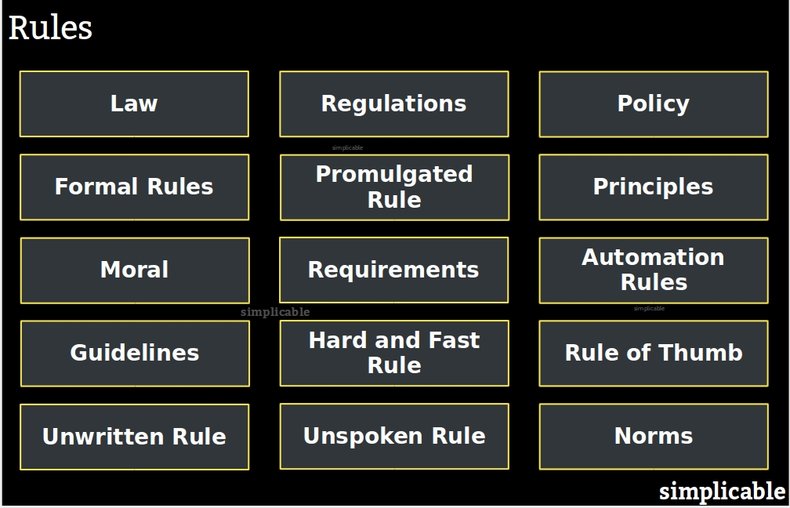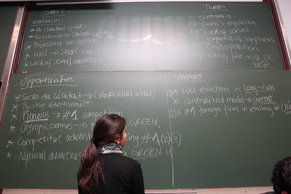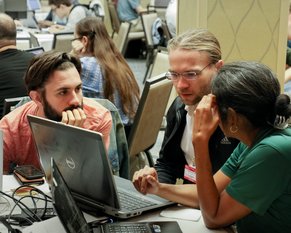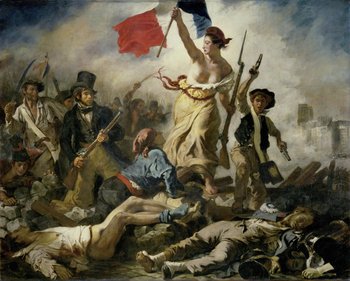
Law
A system of rules adopted by a nation or community to govern the behavior of people and organizations.Regulations
Regulations are rules that are created and tuned on a flexible basis by government departments. They are based on law and have the effect of law. For example, environmental regulations that are regularly updated to reflect evolving threats to communities and ecosystems.Policy
A policy is a course of action determined by a government, organization or individual. These are flexible and change with time to respond to real world conditions. For example, a firm may change its business travel policy to respond to a recession or economic boom.Formal Rules
Rules that are documented and communicated. For example, it is the responsibility of a government to clearly document and communicate the law such that there is no ambiguity regarding what is legal. It should be noted that ignorance of the law is not a defense as it is also the responsibility of the citizen to determine if their actions are legal.Promulgated Rule
A rule that has been well communicated to those to whom it applies. Generally speaking, changes to laws, regulations and contracts do not take effect until they have been sufficiently promulgated. For example, if an employer changes working rules without sufficiently communicating this to employees, it may be unfair to terminate an employee for violating these rules.Principles
Broadly applicable and often open-ended rules that are used as a form of foundational guidance. For example, customer is always right is a principle that customers be taken at their word and not be accused of being irrational or of misrepresenting the truth.Moral
A principle that applies to questions of right and wrong. For example, the golden rule that asks that you treat others as you would like to be treated.Requirements
Rules for building something. For example, a firm that sets a requirement that interior materials of a building be free of VOCs.Automation Rules
Automation rules, also known as business rules, are rules that are enforced or implemented by an application or system. For example, the business rule that salespeople must properly enter all data related to a contact, customer and order before commission will be paid for a deal.Guidelines
Rules that are open to significant interpretation. This allows for flexible responses based on conditions and circumstances. For example, a school may have guidelines for disciplining students who have broken a rule. Such guidelines may suggest approaches that can be applied creatively to meet the needs of the student and their classmates.Hard and Fast Rule
A rule that is not open to interpretation or evasion. For example, parents that set a time limit for playing with mobile devices each evening that is not extendable whatever the situation.Rule of Thumb
A practical guideline that is useful for decision making, problem solving or performing tasks. For example, the peak end rule of public speaking that suggests your audience is only likely to remember the start and end of a presentation.Unwritten Rule
A rule that has been communicated but not documented. For example, a manager who has asked an employee to be in by 9:30 each morning without documenting this in working rules or a formal warning.Unspoken Rule
A rule that is understood by members of a group without being communicated. For example, a team where it is generally understood that you can't go home before the boss.Norms
Expectations for behavior set by a society or culture. These evolve over time as a matter of tradition and can't be directly controlled. Enforcement occurs via social processes. For example, the norm amongst joggers to never run down the middle of a trail but to run on the same side as you would drive e.g. on the right in the United States.| Overview: Rules | ||
Type | ||
Definition | Predefined instructions for behavior, processes, decision making, problem solving and the control of resources. | |
Related Concepts | ||






























